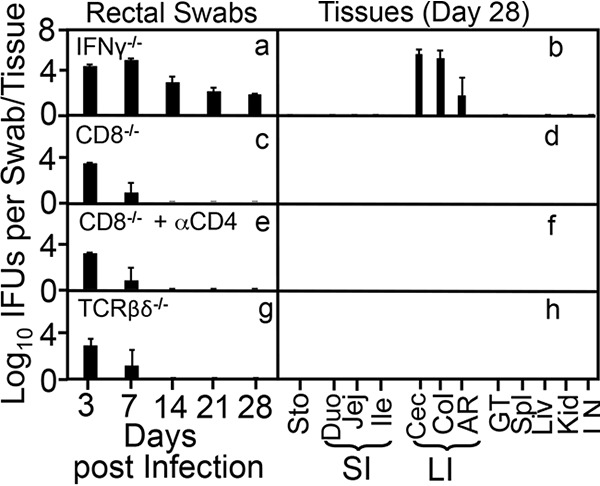FIG 2.

Deficiency in IFN-γ but not conventional T lymphocytes rescues the ability of the intracellular bacterial mutant to establish long-lasting colonization in the large intestine. Mice deficient in IFN-γ (IFNγ−/− [a and b]) but not CD8+ T cells (CD8−/− [c and d]), CD8+ T cells plus depletion of CD4+ T cells (IFNγ−/− + αCD4 [e and f]), or all T cells expressing T cell receptor β (TCR β) or TCRδ chain (TCRβδ−/− [g and h]) were intracolonically inoculated with the intracellular bacterium mutant clone G28.51.1 at an inoculation dose of 1 × 107 IFU. On days 3 and 7 and weekly thereafter, rectal swabs were taken (a, c, e, and g), or on day 28, mouse tissues were harvested (b, d, f, and h), as indicated along the x axis for monitoring live chlamydial organisms as shown along the y axis. Mouse tissues include different segments of gastrointestinal tract and extra-GI tract tissues as described in the Fig. 1 legend. Note that while mice deficient in IFN-γ showed rescue of long-term colonization of the mutant, the deficiency in CD4+ and CD8+ T lymphocytes, or T cells expressing TCRβ or TCRδ is insufficient to rescue the mutant. P < 0.01, Wilcoxon rank sum (area-under curves between IFN-γ knockout group and any other groups [n = 4 to 6 from 2 or 3 independent experiments]).
